God of War Ragnarok is already exactly what I hoped it would be
God of War Ragnarok isn't a complete evolution, but it doesn't need to be
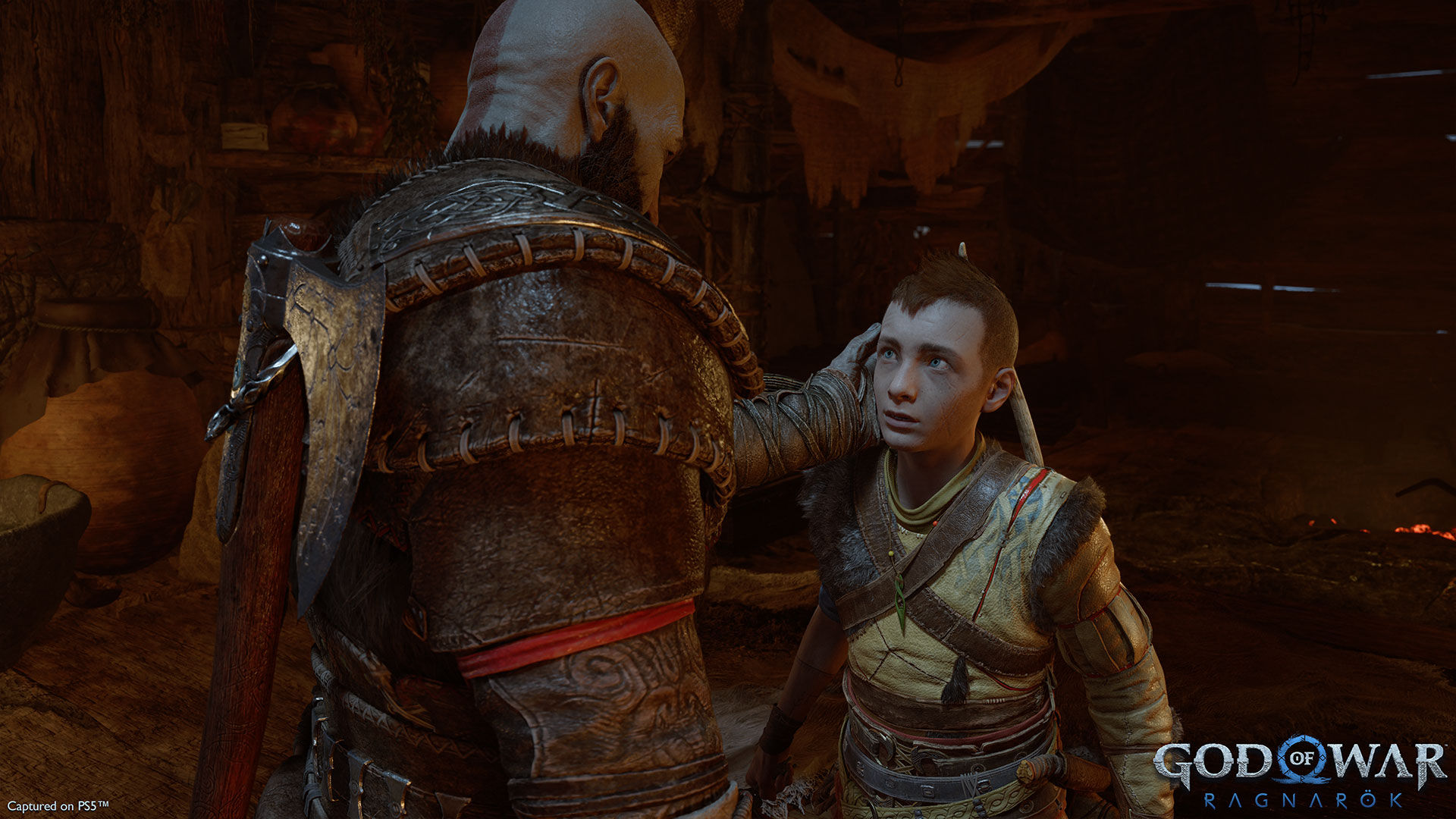
I'm not even an hour into God of War Ragnarok and I've already cried… twice. Now I'm not going to spoil why I found myself blubbering into my DualSense, but it's clear that this highly-anticipated sequel hasn't lost its touch with the emotional gut punches. Tears aside though, it's comforting to be back in the company of old friends, and I'll admit I was nervous to rejoin Kratos, Atreus, and Mimir after the sheer masterpiece that was the 2018 reboot. But, it turns out I really didn't have anything to be worried about.
We're rejoining our odd little family some years after the end of the last game, and a lot has changed. The opening hour or so reintroduces us to the characters while also highlighting just how many connections have shifted. Mimir has taken on more of a parental role to Atreus and is much more open and honest with Kratos about the way the pair of gods are behaving. Atreus meanwhile is more headstrong, older obviously, and constantly questioning and pushing for more information on the revelations that were made at the end of the last game. He's keeping secrets from his father, and you can sense a rift is beginning to crack between them. Kratos too is changed again – quieter, a little more emotionally balanced, no longer calling Atreus 'boy' or Mimir 'head', instead treating them more as equals (or at least with more respect). But, of course, keeping his own secrets too, particularly around that final panel from the giants' prophecy of the last game.
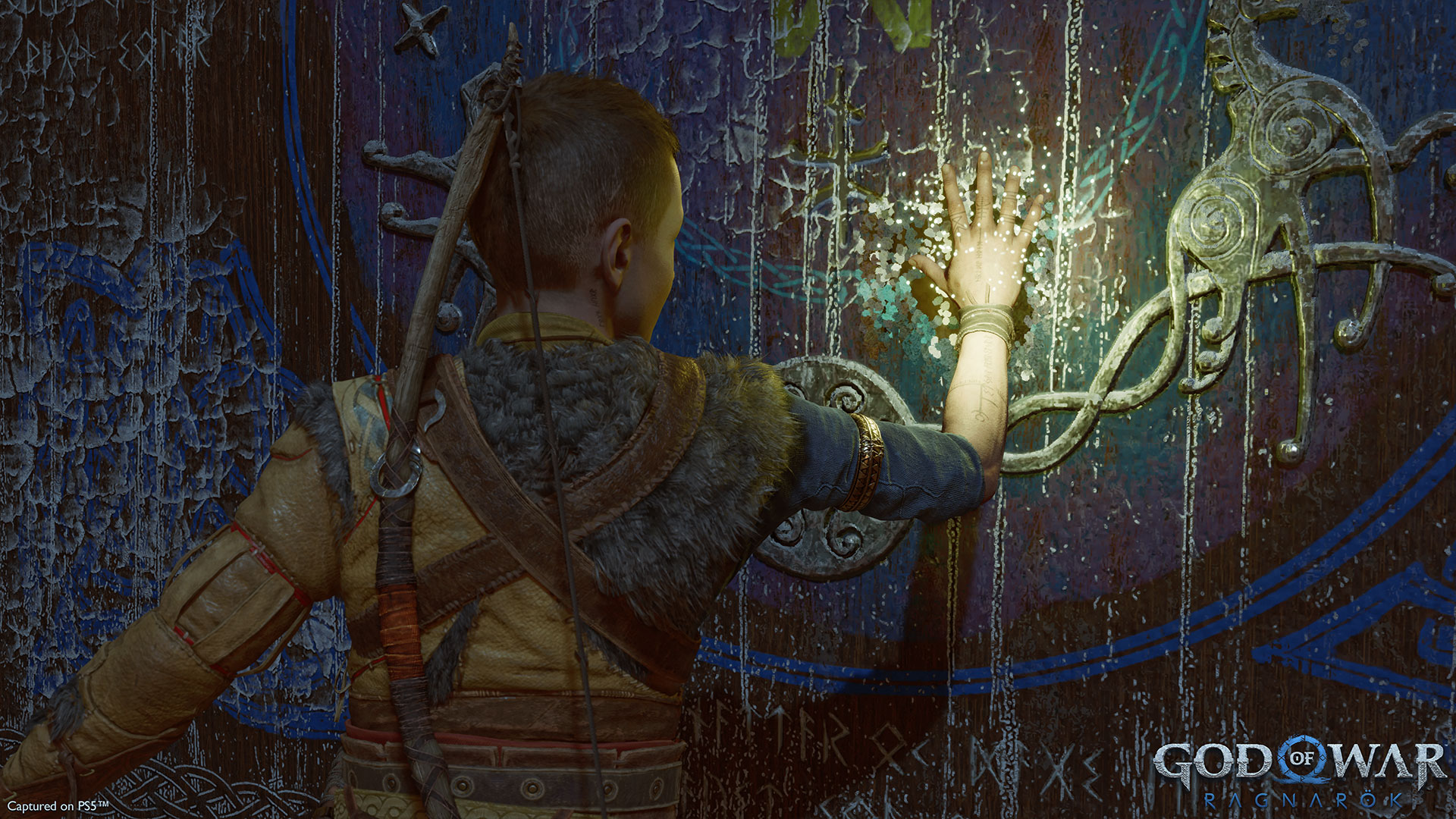
So many of these details emerge in the first few hours alone, in a show of narrative prowess that is hopefully indicative of what to expect throughout the rest of the game – it's certainly an equally confident opening as the last God of War. There are also some rather beautiful parallels between how the two games open, with lovely callbacks that just accentuate how different the relationship is here between father and son. Kratos is still an unsure father, that much remains, but there are such different dynamics at play here that part of the allure is discovering what has changed.
I love the fact that there's so much color in the smaller moments too. Walking around Midgard, for example, Atreus peels away from Kratos at certain points and if you follow him he'll make a little comment or observation that just adds to what you're learning about the duo's interactions. It's only a small thing, but it's another reward for taking your time to poke around each of the areas you find yourself in.
Meet you in Midgard
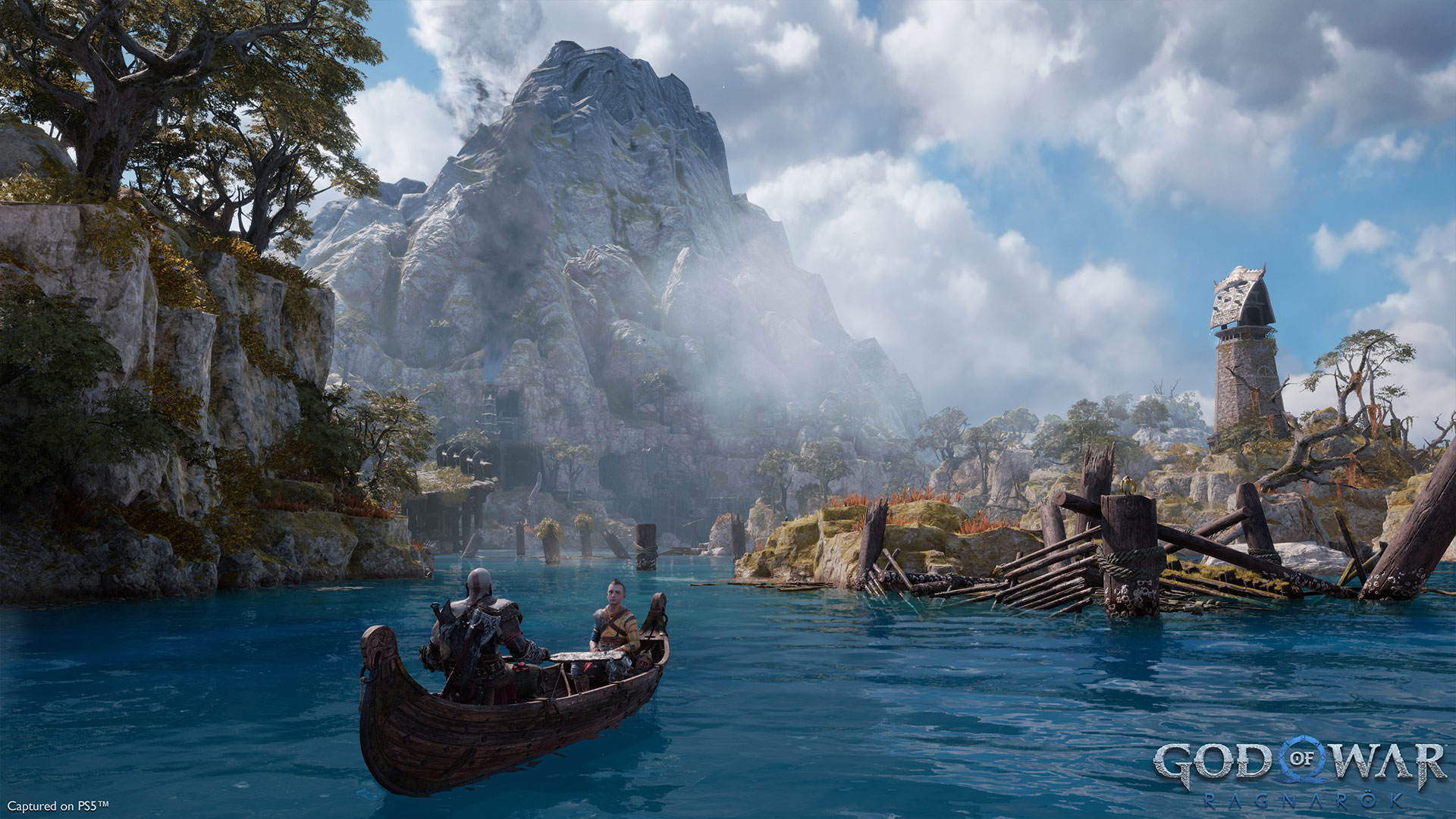
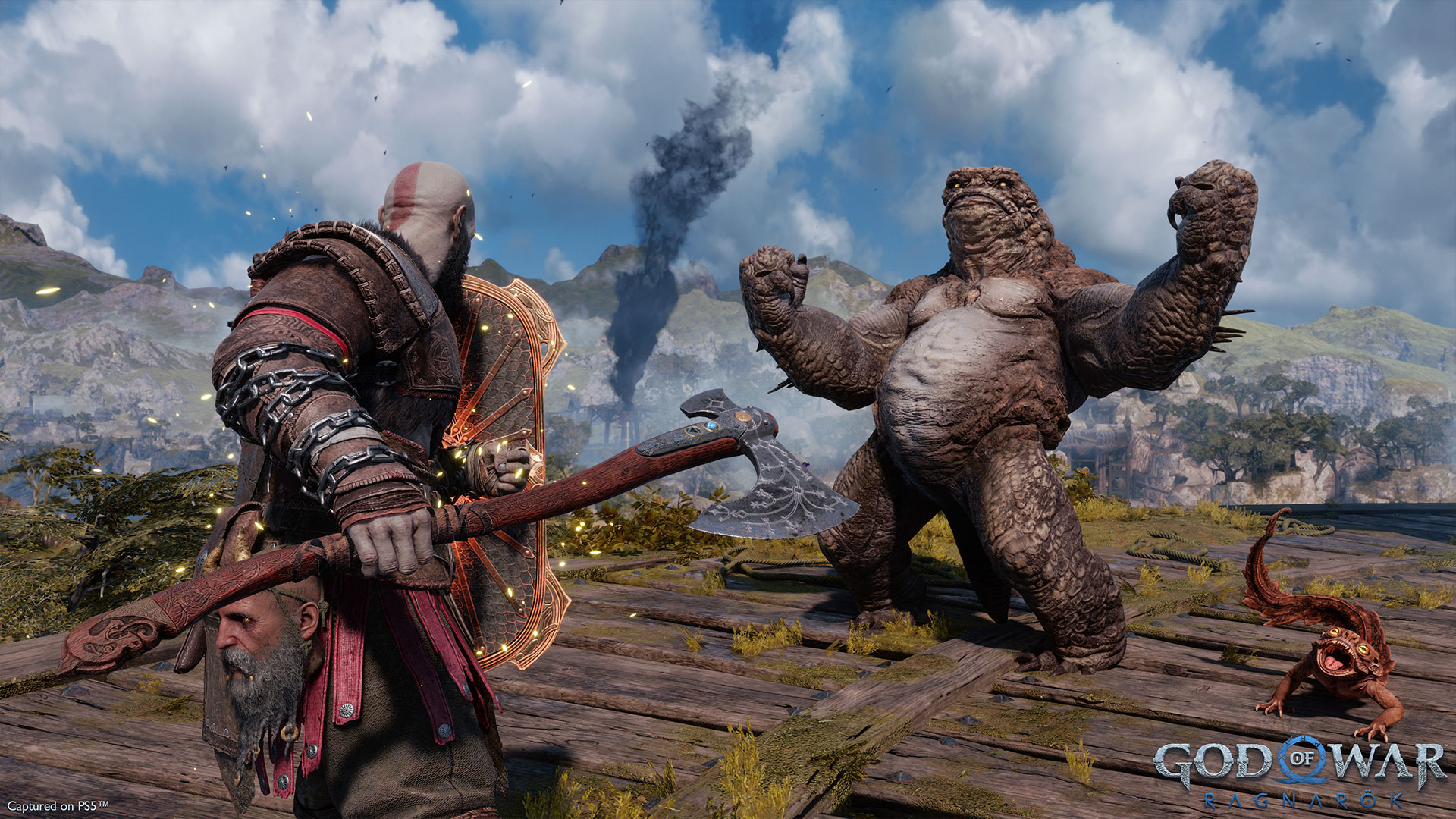

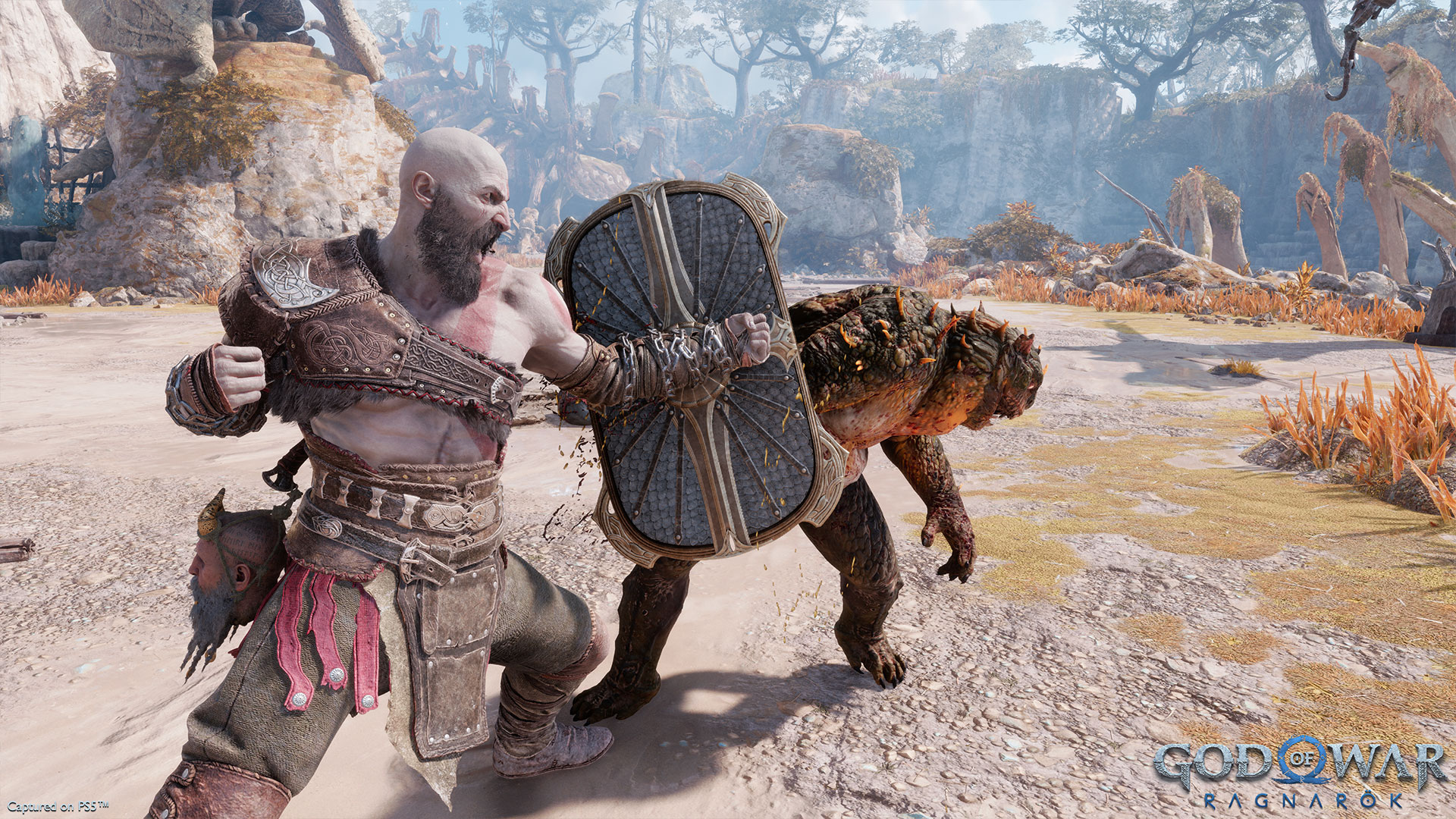
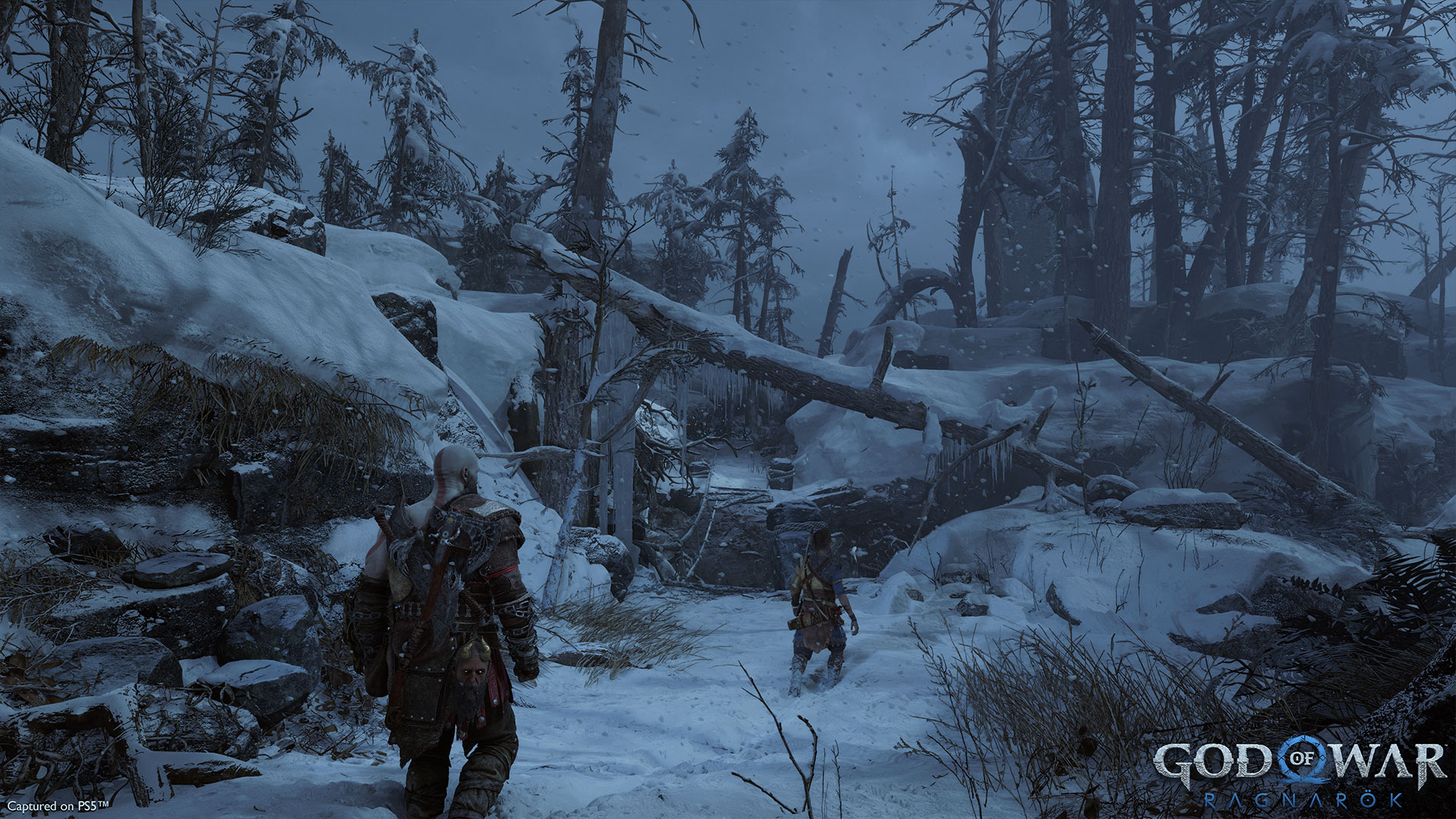
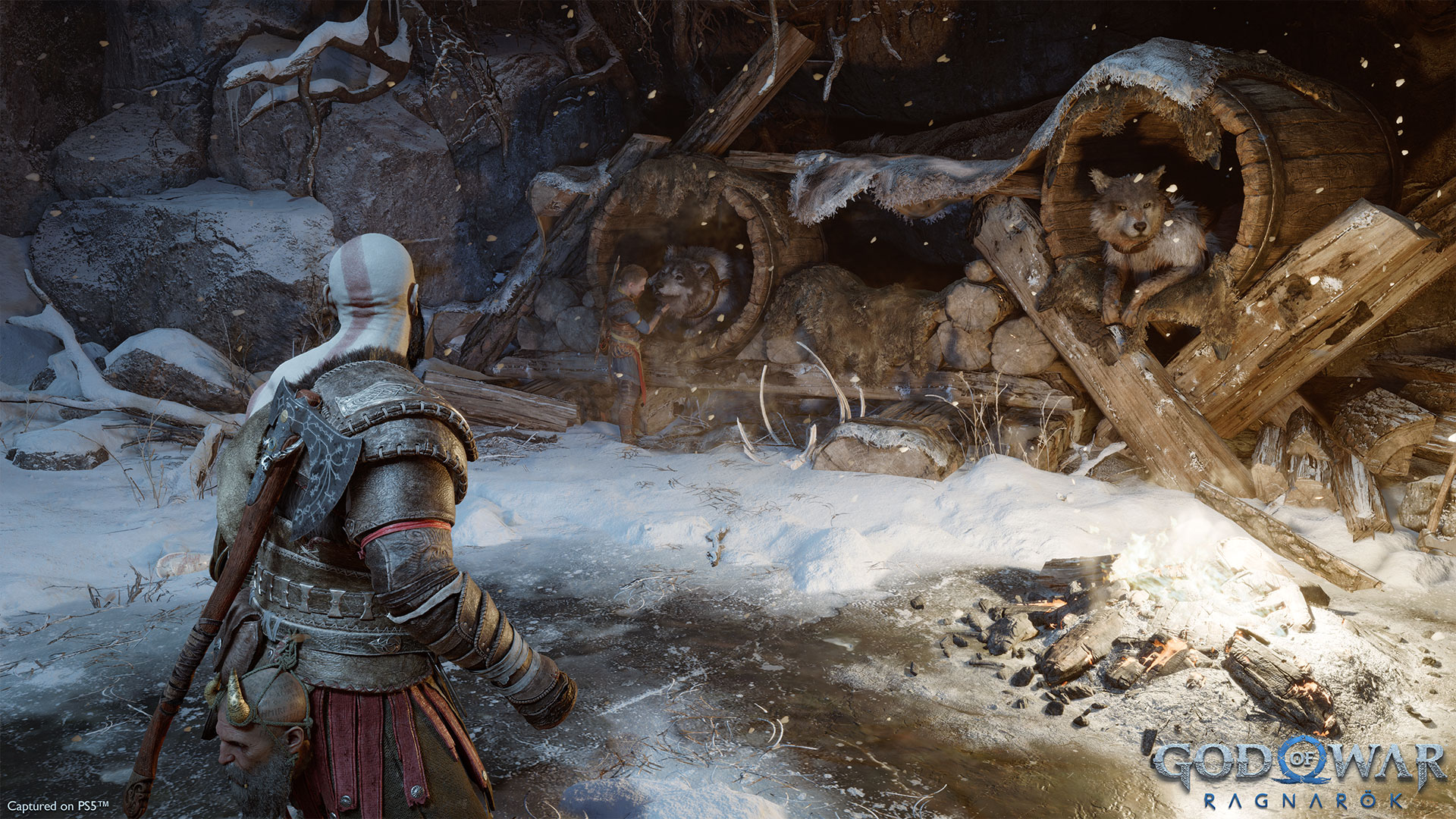

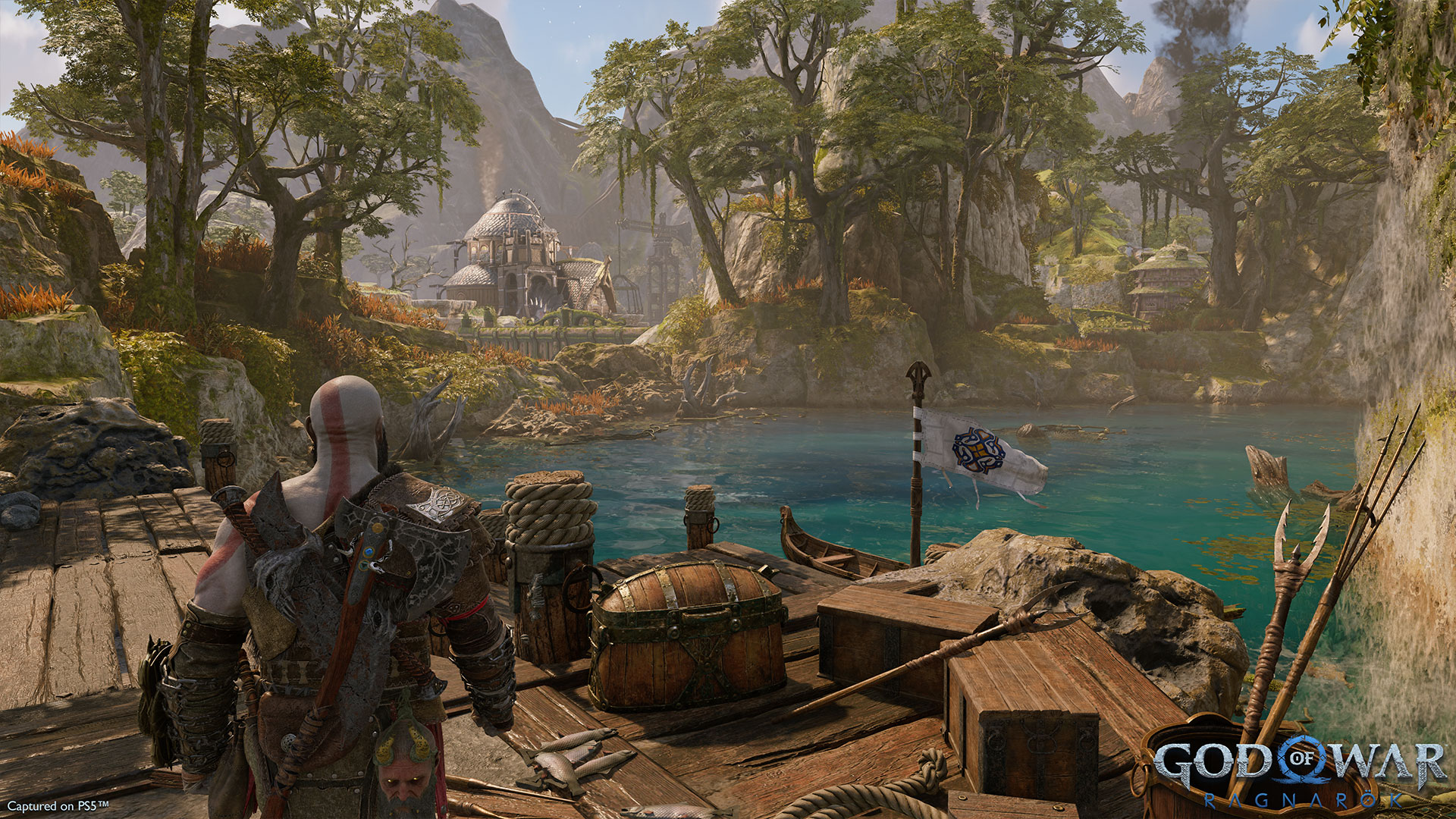
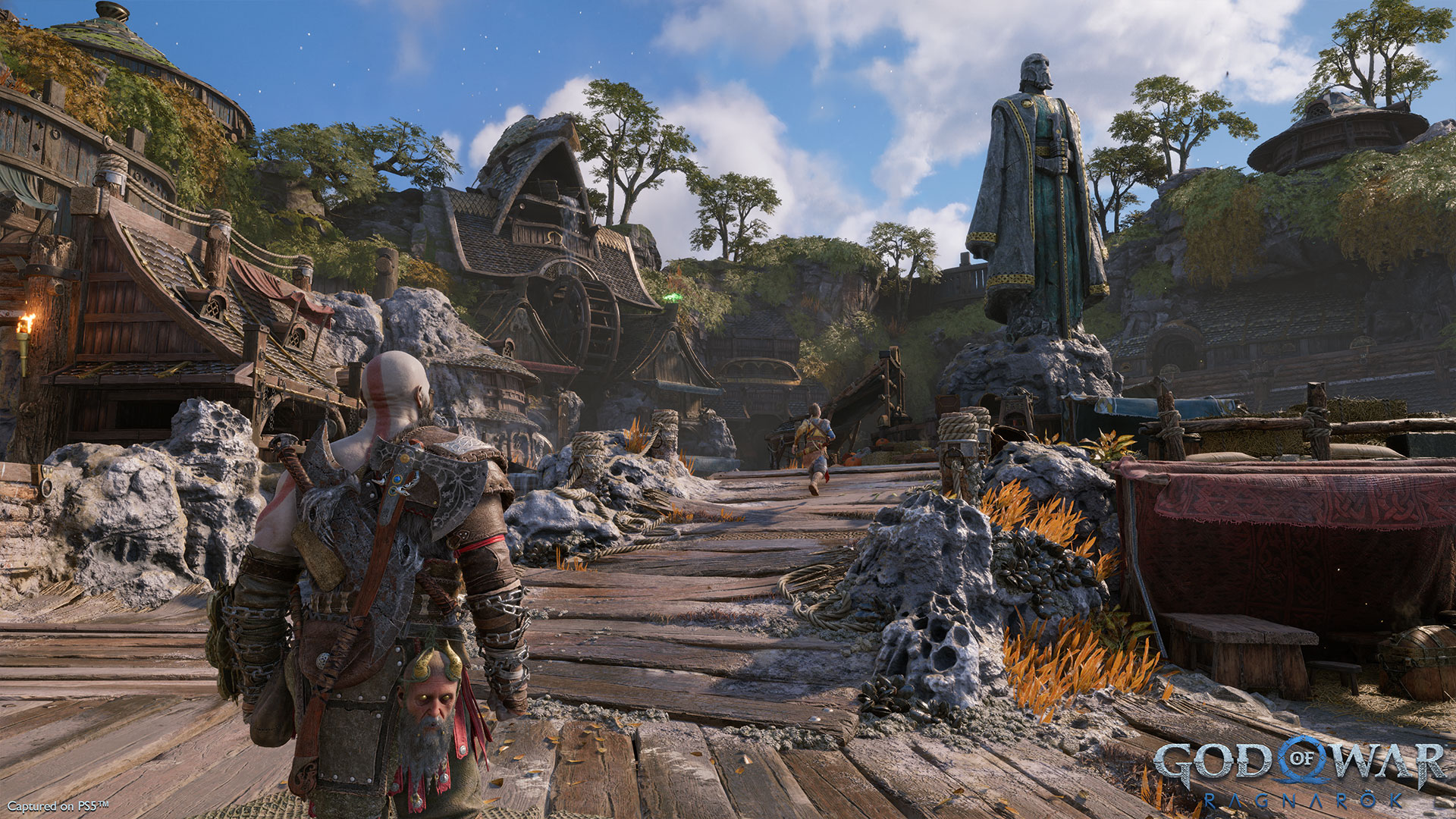

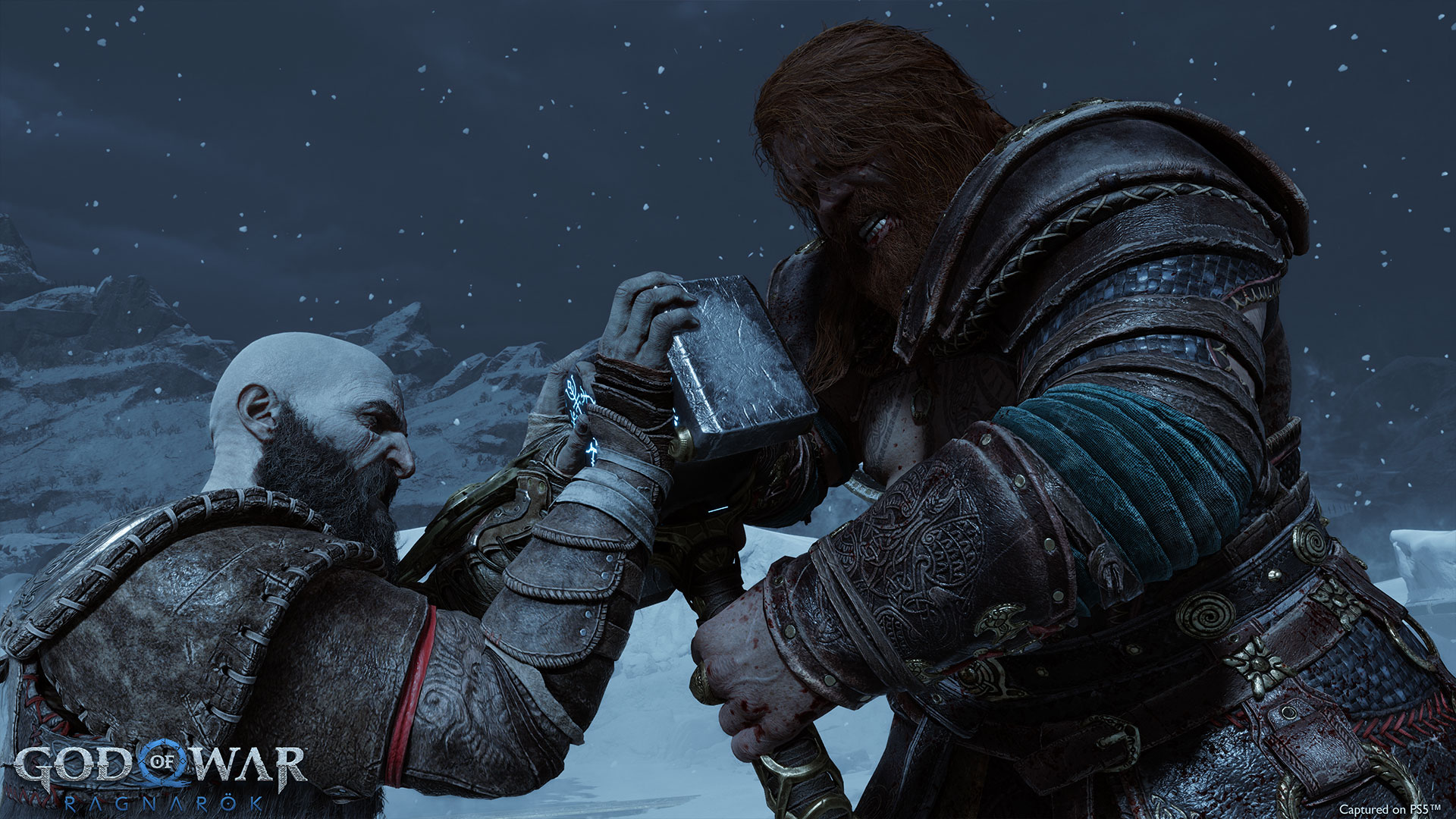

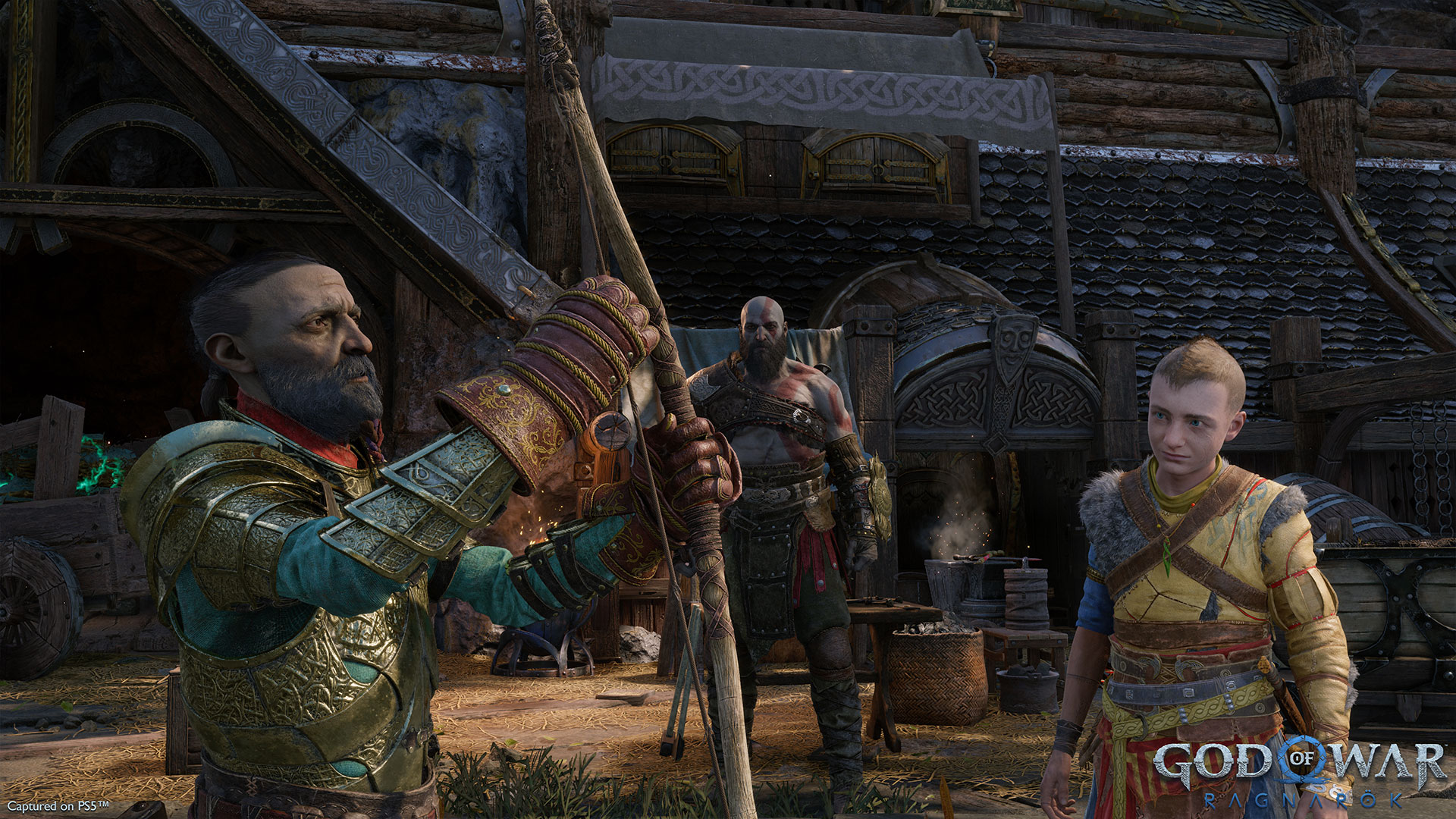
Otherwise, though, it's a much more linear game than the last – at least thus far. There is a point where God of War Ragnarok allows you time to explore a side quest that involves discovering a little more about Mimir's past with the dwarves of Svartlefheim and some mines, but otherwise, it's been pretty focused on driving the story forward down set paths. That, for now, feels quite different from the fixation the last game had on the Lake of Nine in Midgard and its constantly shifting water levels. At this point though I've only played some six or so hours of the game, so I'll be intrigued to see where else the story takes our heroes in its quest to stop Ragnarok, especially with returning characters like Sindri and Brok, and new ones like Tyr having an impact on the story.
That's not to say that there isn't plenty of exploring to be done, with many of God of War's gameplay elements making a comeback. You'll quickly realize that we're getting more puzzle-based Nornir chests to crack and some 48 glowing green ravens to shoot out of the sky, trees, and other hiding holes, but I'm teased by game director Eric Williams that this time around they have more narrative relevance. There's plenty of puzzle-solving to be done generally too, with many taking advantage of the fact you have the Leviathan Axe and Blades of Chaos – and their respective ice and fire elemental powers – from almost the very beginning of the game.
War of gods
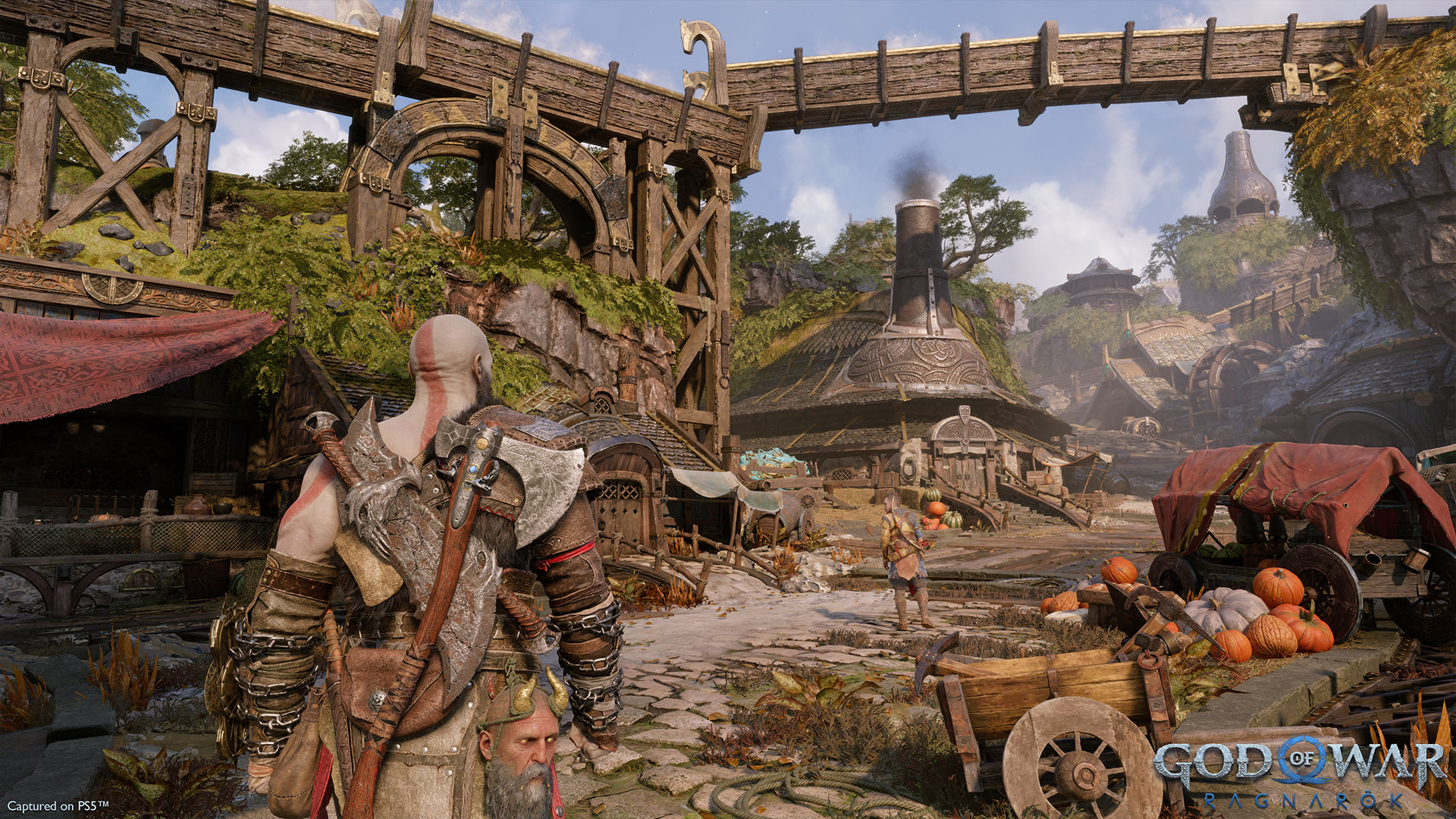
For anyone worried that this isn't going to be an evolution of what 2018's God of War delivered, you are somewhat right – but not in the sense that you should be worried outright. It's familiar in many ways, but where there are serious improvements involve combat. This is a much more streamlined version of the combat, with plenty of customization available from the opening hours. I'm told it'll be a lot easier to really lean into a playstyle with God of War Ragnarok, so if you like the idea of a tank-like Kratos then you can go for it. You've also got Weapon Signature Moves that are mapped to the triangle button and let you unleash more elemental attacks but with serious flourish and power.
Sign up to the GamesRadar+ Newsletter
Weekly digests, tales from the communities you love, and more
You can play with your environments a lot more too, with the blades letting you grapple around and you can ask Atreus to hit glowing points with his sonic arrows to bring down pillars or last open new routes. You've even got new shields to choose from, one capable of dishing out a stunning attack when you parry at just the right moment, and the other used for storing kinetic energy with each blocked hit that can then be used against your foes.
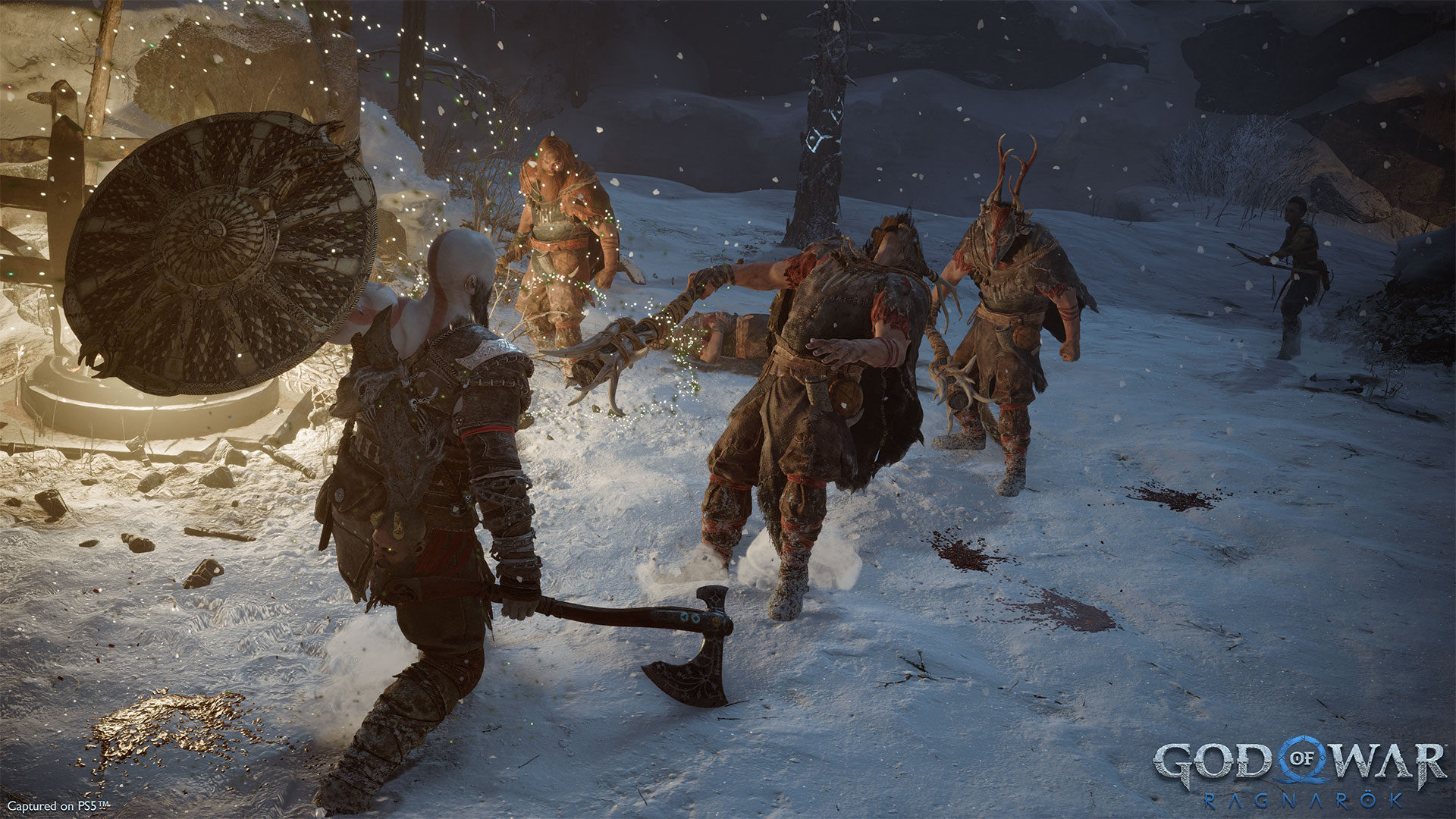
It means combat is still brilliantly complex, so it takes me a little while to get back into the (literal) swing of things. But it's not long before I'm flinging my ax at floating eyeballs and whipping the blades in the faces of any foe that dares look at me funny. When you're in the flow, it's insanely satisfying, which is a good thing as there's still a lot of fighting to be had here amongst all the emotions.
I'm already hooked on God of War Ragnarok. It's proving to be such a confident, beautifully executed sequel that lives up to every expectation set by its predecessor. It's not a complete evolution, but then did it need to be? When the 2018 game was such a seismic shift from the original trilogy, all this game really needs to do is hone and refine what came before it. And I think it's going to do that and more.

Sam Loveridge is the Brand Director and former Global Editor-in-Chief of GamesRadar. She joined the team in August 2017. Sam came to GamesRadar after working at TrustedReviews, Digital Spy, and Fandom, following the completion of an MA in Journalism. In her time, she's also had appearances on The Guardian, BBC, and more. Her experience has seen her cover console and PC games, along with gaming hardware, for a decade, and for GamesRadar, she's in charge of the site's overall direction, managing the team, and making sure it's the best it can be. Her gaming passions lie with weird simulation games, big open-world RPGs, and beautifully crafted indies. She plays across all platforms, and specializes in titles like Pokemon, Assassin's Creed, The Sims, and more. Basically, she loves all games that aren't sports or fighting titles! In her spare time, Sam likes to live like Stardew Valley by cooking and baking, growing vegetables, and enjoying life in the countryside.


